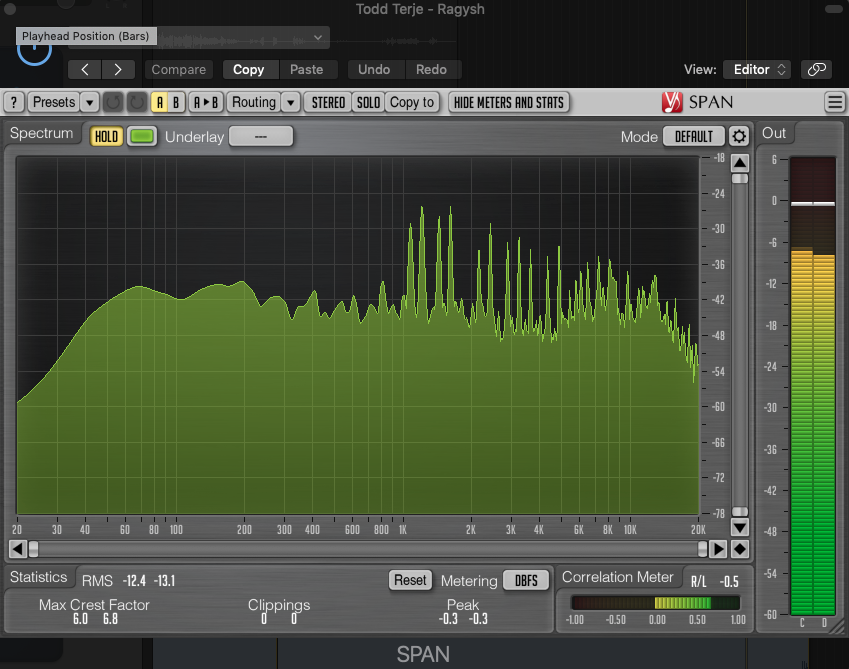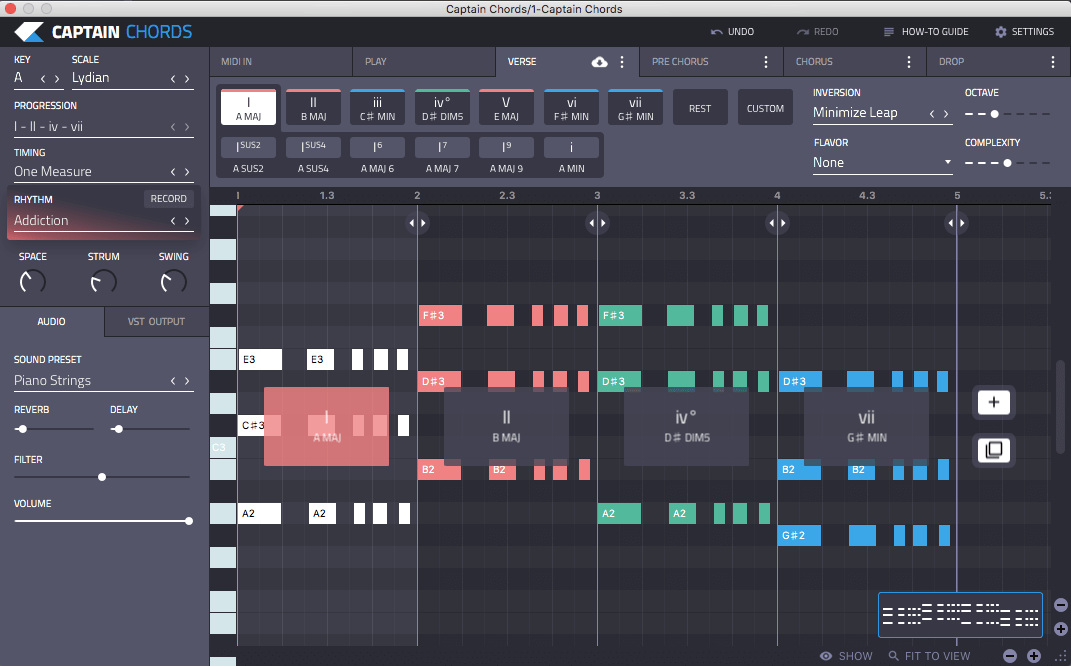How to prepare a Pre-Master

What is mastering?
Any artist releasing music on a record label will need to provide the label with high quality unmastered versions of their music, also known as ‘premasters’.
Equally, any artist choosing to self-release will need to create a good quality premaster for each track.
They’ll then need to find a mastering engineer to render their services.
The mastering process is a highly technical, almost mystical, art. Experience, a phenomenal ear and high quality equipment are employed by a mastering engineer to turn a good mix into a great track.
The results are hard to quantify sometimes, as on casual listening it may be hard to tell exactly what has changed. But, when done properly, mastering makes a vital difference.
 The main benefits of a mastered track are:
The main benefits of a mastered track are:
- Optimized for playback on all media (from phone speakers to stadiums)
- Precise and detailed modifications to the audio for maximum quality (multiband compression, EQ, compression, limiting, stereo imaging, excitement, saturation and many more techniques)
- Boosted for maximum loudness while retaining optimum dynamic range
- Professional sounding, polished audio
Write Chords Faster with Captain Chords
- Use Captain Plugins to write your own Chord Progressions, Hooks, Melodies and Basslines
- Export to your DAW
- Available on Mac and Windows.
How much does it cost, and do I need it?
Mastering prices vary from around $10 per track for a digital, home studio master, up to $100+ per track for a professional studio master for vinyl pressing.
There are also ‘off-the-rack’ services which offer an automatic service done by a computer program. As a general rule, you get what you pay for, so you should make your judgement based on a few different factors:
- Where do you hope the music will be played? (nightclubs, radio, youtube, spotify etc)
- Realistically, how likely are you to make a return on investment, either financially or in increased reputation?
- How important is having the best possible sounding audio results?
Frankly, if the music isn’t destined to be played in a nightclub or on other high-end, high volume audio system, the need for top quality mastering is diminished.
That’s not to say it isn’t desirable, but it’s imprtant to be realistic. If you’ve done a cover song for upload to Youtube, the low revenue return and lo-fi nature of the medium mean a cheap master is probably fine.
Having said that, Many artists are choosing to cut mastering from their budgets and still hoping their music will get played by top DJs or on nightclub systems. Cutting costs here is ultimately self-defeating.

Digital Vs Physical
Most mastering these days is done for digital consumption – reproduction on digital DJ software, phones, laptops etc.
As a result, the demands are slightly simpler for a mastering engineer, while audio destined for physical media (vinyl, CD, cassette) requires separate treatment. This accounts for the various quirks of each medium.
For example, vinyl tends to exacerbate sibilance (high end frequencies like hi-hats, cymbals etc) which can lead to loss of bass.
If you intend to have your music mastered for physical media, it’s important to find a mastering engineer that has lots of experience and will talk you through exactly what he needs from you.

How to find a mastering engineer
The rise of affordable home studio gear and digital mastering software has seen a huge increase in the number of commercial mastering services.
At its simplest, the process is simply that of EQing the track and applying a Limiter. It’s very easy to call yourself a mastering engineer if you have a couple of bits of software.
Therefore it’s imperative to do a little homework – don’t just go with the cheapest unless you’ve heard some examples of their work and have had a chat with them about the project.
There are some incredible engineers available for less than premium rates on sites like Fiverr.com. You can see real customer feedback and precise costs/services. Instagram, Facebook and Soundcloud are also awash with people offering mastering services.
PRO TIP
For those with a bit of extra budget looking for a top-end service, check the credits of releases in the same genre. You might find the same engineer names keep cropping up. Maybe they’re even in the ame vicinity to you.
You’ll want to ‘sit-in’ on high-end masters so you can have input into the finished product.
Equally, never underestimate the power of word of mouth for unearthing great services.
Hopefully this general overview of mastering and its applications has been helpful, but let’s get to the crux of the matter… how do we actually prepare our audio files for mastering?
Preparing your premaster. Step 1 – Get the mix right.
The old adage ‘put sh*t in; get sh*t out’ is painfully true here!
Mastering will polish your audio and turn good tracks into great ones.
If the mix is imbalanced and it’s not a good mix already, there really isn’t much an engineer can do.
A good engineer will tell you if there are inherent problems with your mix rather than take your money to output inferior audio.
After all, it’s their reputation on the line too.
PRO TIP
Use a spectral analyzer like Voxengo Span, a free software that gives a detailed analysis of your audio. Apply Span to your master channel and watch the waveforms. At the peak, or busiest sections of your track you should have a nice, even spread across the whole dynamic range, with no major dips.

Maya Jame Cole – Cicadas

Bicep – Orca

Todd Terje – Ragysh
As you can see from the examples above, top tracks have a pretty consistent EQ spread, with very little in the way of sharp peaks. The examples we’ve used, however, highlight that there is some room for deviation. Each has a spike or two that could be considered ‘incorrect’ – if in doubt about your own mix, consult your mastering engineer or record label.
Step 2 – No (no no no no, no no there’s no) limit
Ignoring the 2Unlimited reference, it’s very important that your premaster has zero limiting or compression on the Main Mix or Master channel.
There’s a simple reason for this… compression and limiting are two processes that your engineer will apply themselves.
They have their own equipment and bags of experience and will want total freedom to work their magic. If you have already applied some, you’ve essentially narrowed the dynamic range available to the engineer and reduced their effectiveness considerably.
It’s tempting to add a limiter because it will make your track sound louder in the short-term, but this is a trap to avoid.
A good engineer should return pre-limited tracks and ask for new versions.

Step 3 – Max Headroom
Your mastering engineer will ask you for a track with around -4 to -6 db of headroom.
What they mean is the maximum output level of your track must peak at no more than either -4 or -6 db below the 0.0 mark (the loudest a track can go before clipping).
Therefore check your output level on the Main Mix/Master channel and ensure it has plenty of room. Aiming for -1db less than requested is about right.
You may have already cottoned on… but leaving headroom like this means saying a big fat no to the Normalize function. You don’t need it, and it is a pain for mastering engineers, so leave it off.

Step 4: Lossless audio
This may seem excruciatingly obvious, but always bounce down your premaster as WAV, AIFF or other lossless format (not mp3).
PRO TIP
While on the subject of file formats, it’s worth noting that some mastering engineers charge different prices for mp3 masters and WAV/Lossless masters.
Be sure to check what you’re buying, as being left with an mp3 may not be particularly useful. For example, you wouldn’t be able to upload that file to Bandcamp as they require lossless audio.
Step 5 (optional) – Send example tracks with your premaster
You should have a pretty clear idea of how you want your track to sound, after all, you wrote it!
Let’s say, for example, you wrote a track that you hope sounds similar to Rudimental. Why not send a Rudimental track in with your premaster as an example of what you’re hoping to achieve?
Your engineer will appreciate the guidance as it helps them make decisions they think you’ll appreciate.
It’s by no means essential to do this, but a good idea nonetheless.
Write your own tracks using Captain Plugins
Create your own chords, melodies and bass-lines with Captain Plugins. Visit the official Captain Plugins homepage and see how it will help you explore music and write your own original productions.
